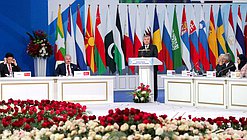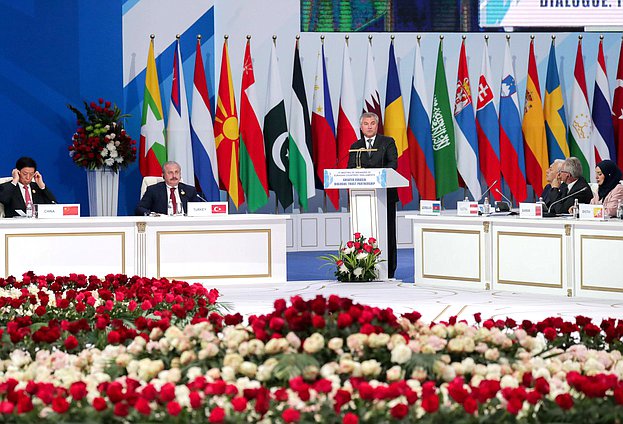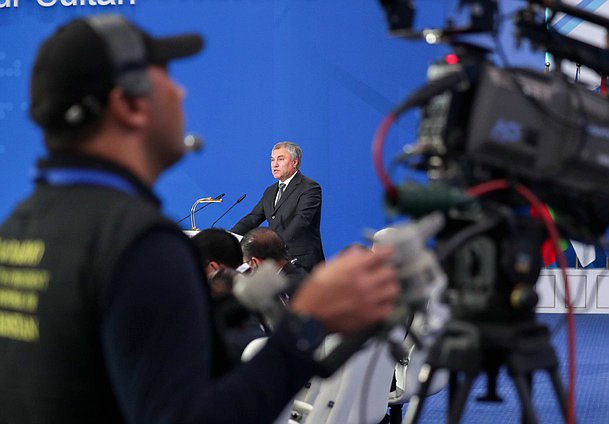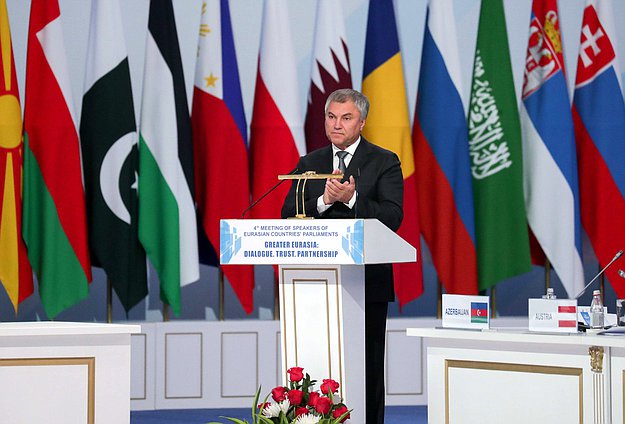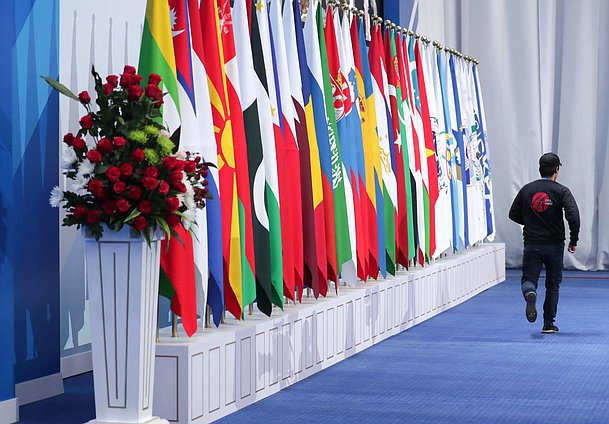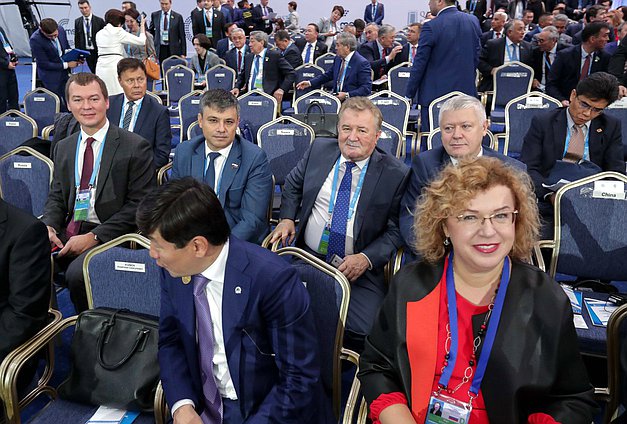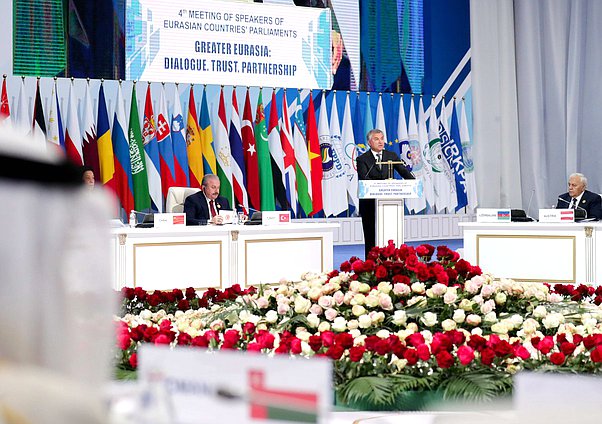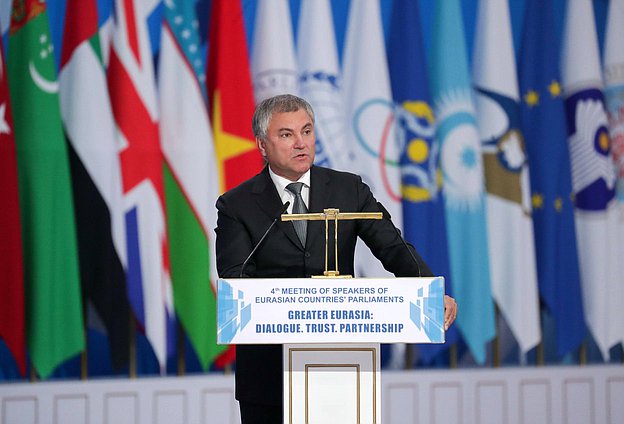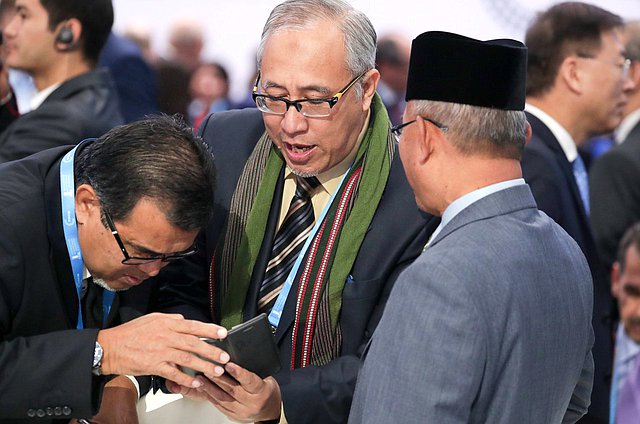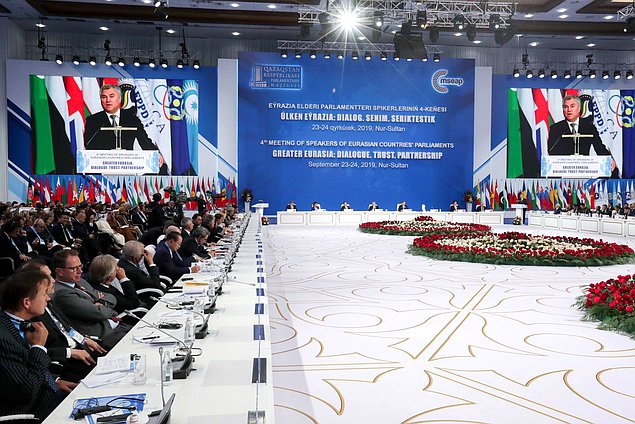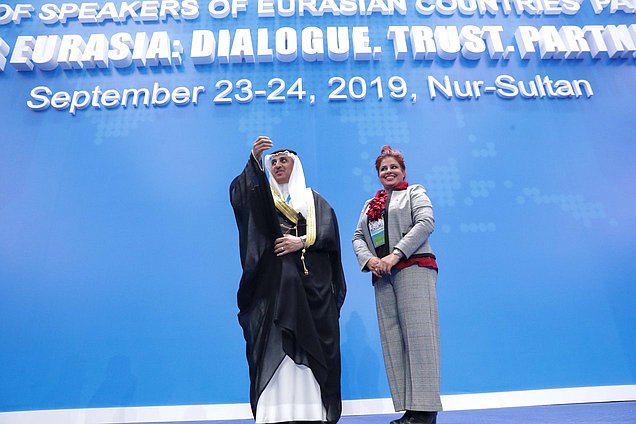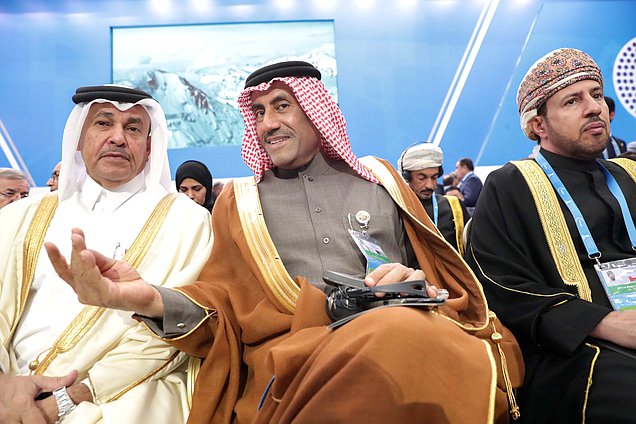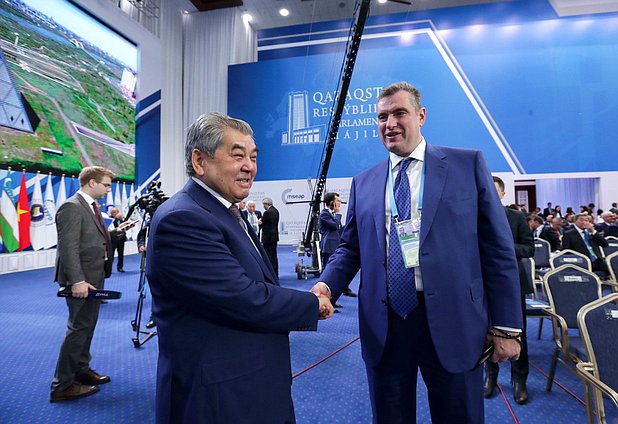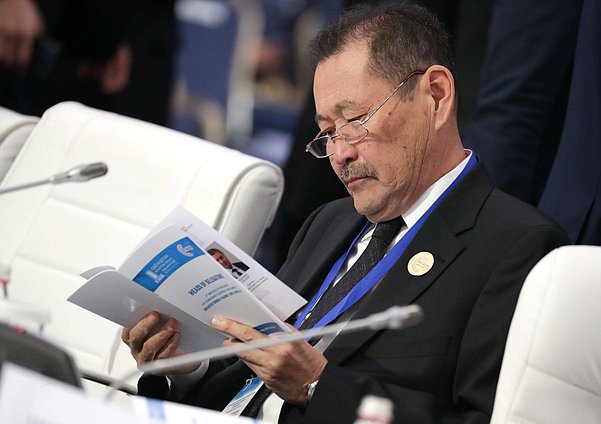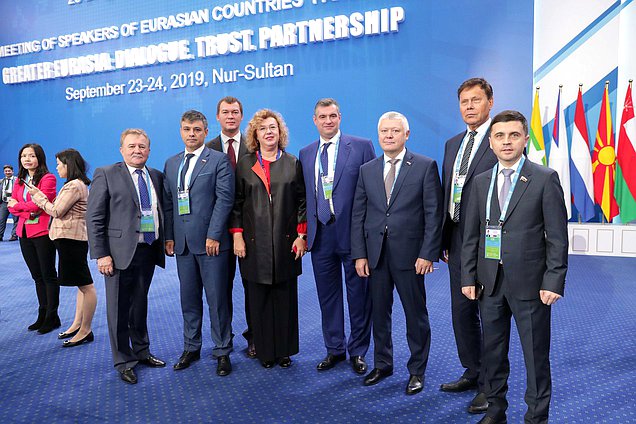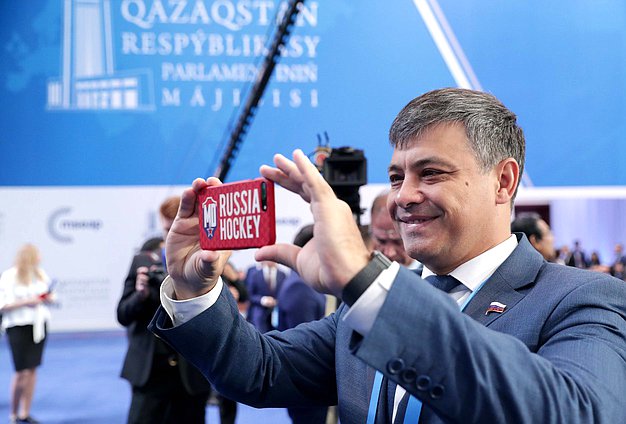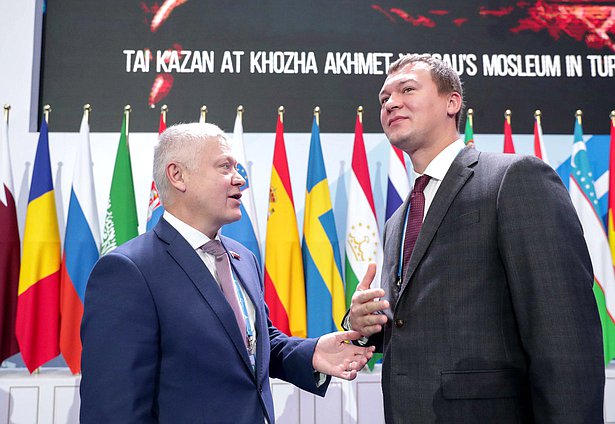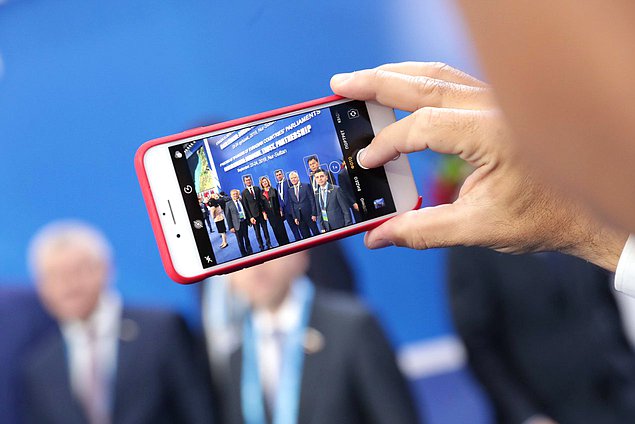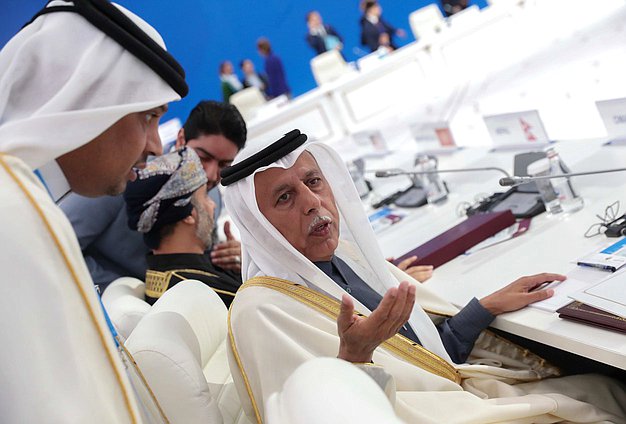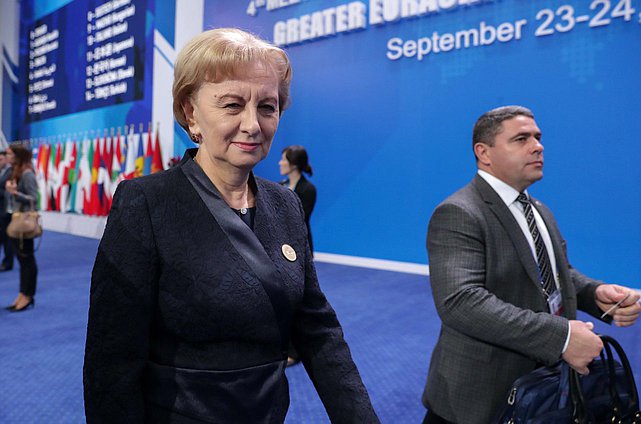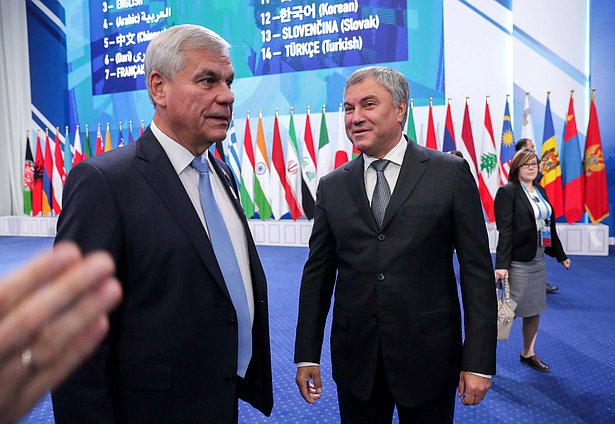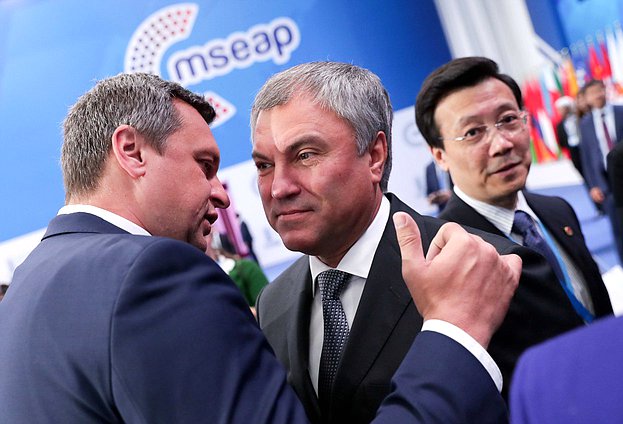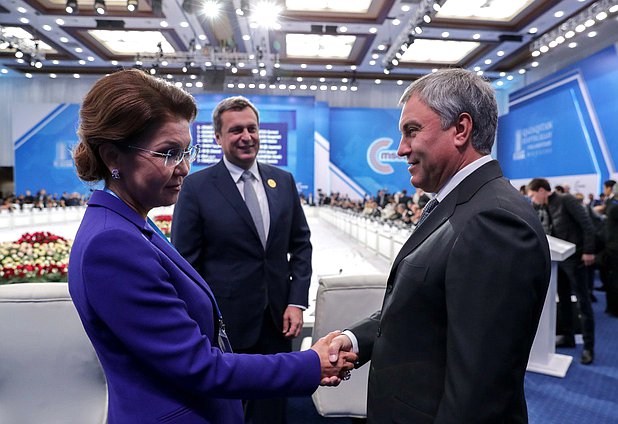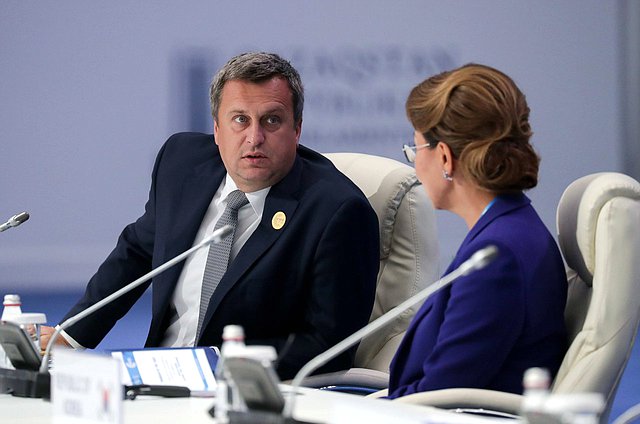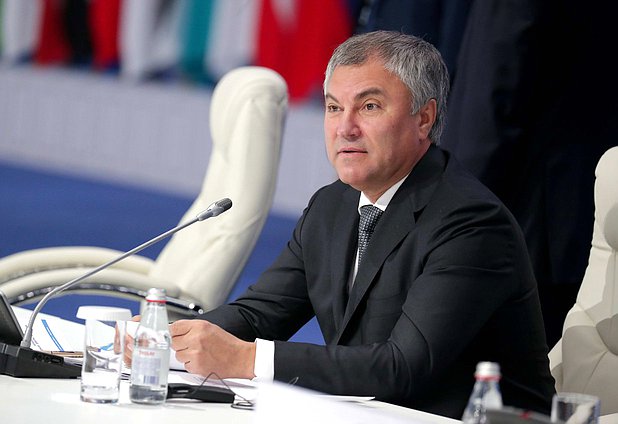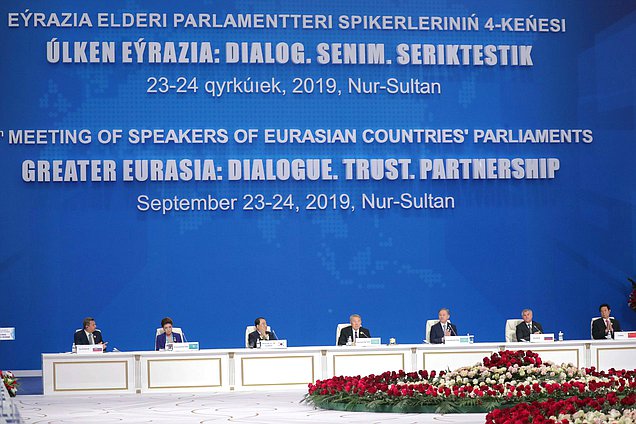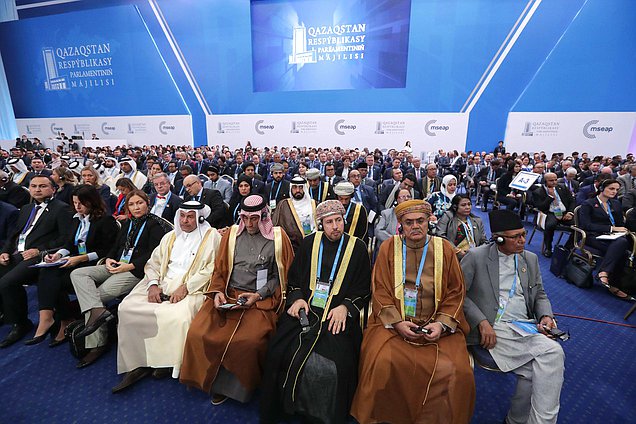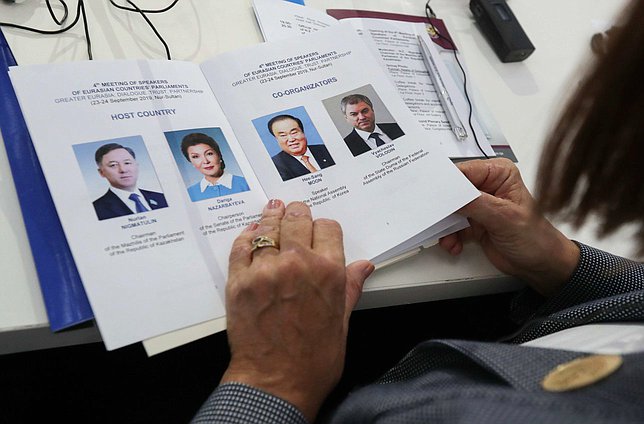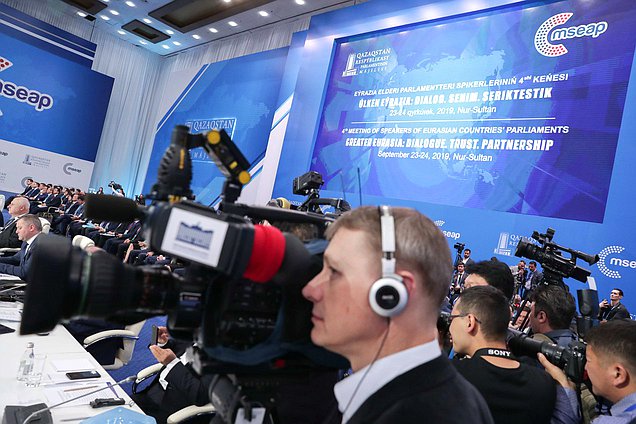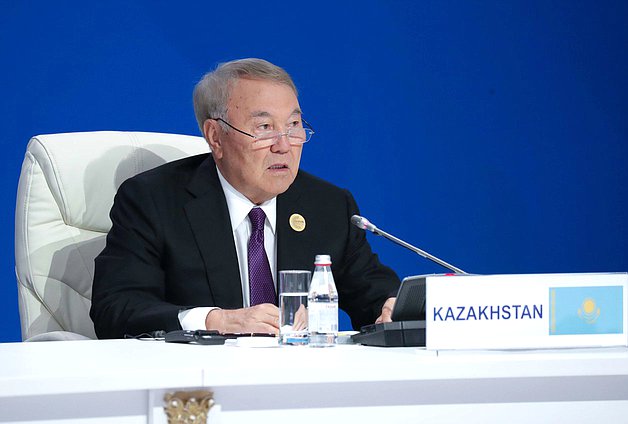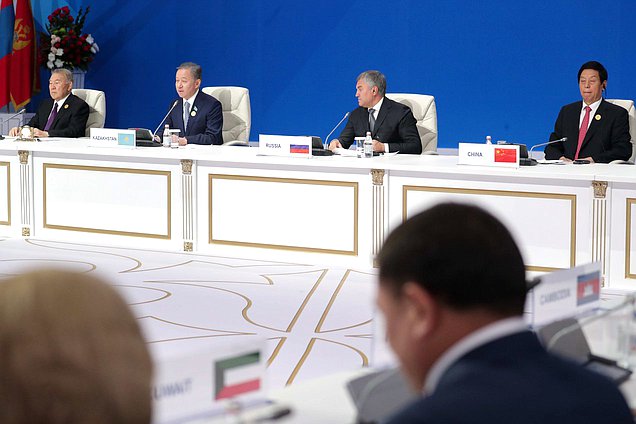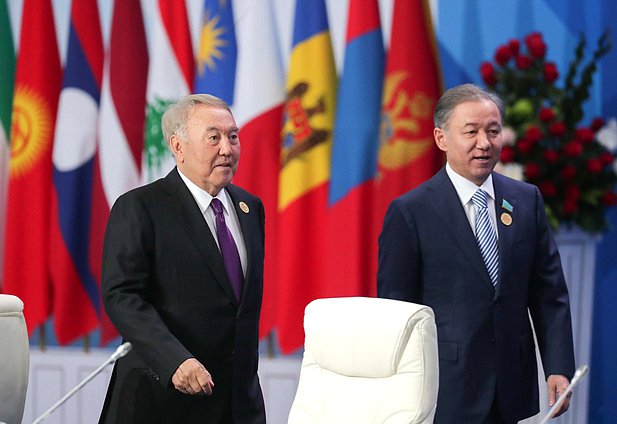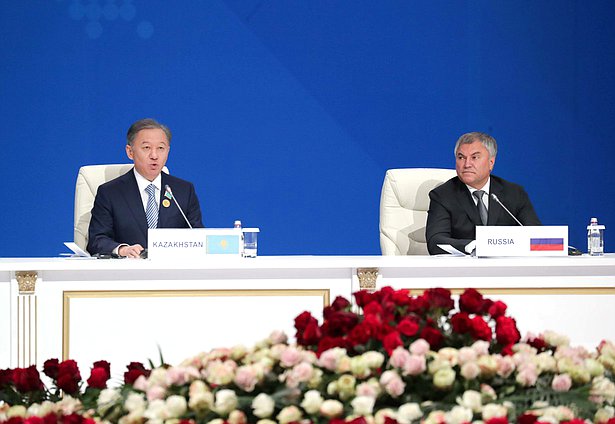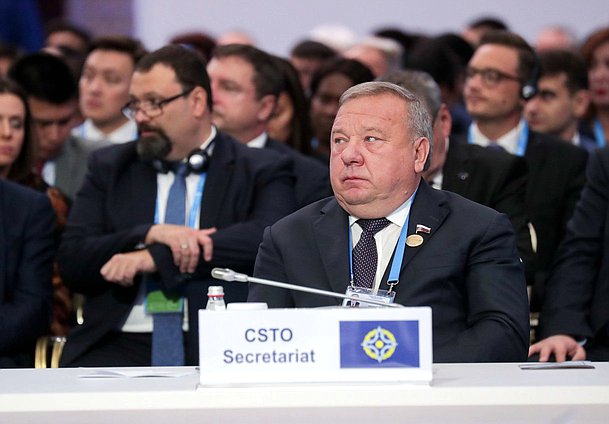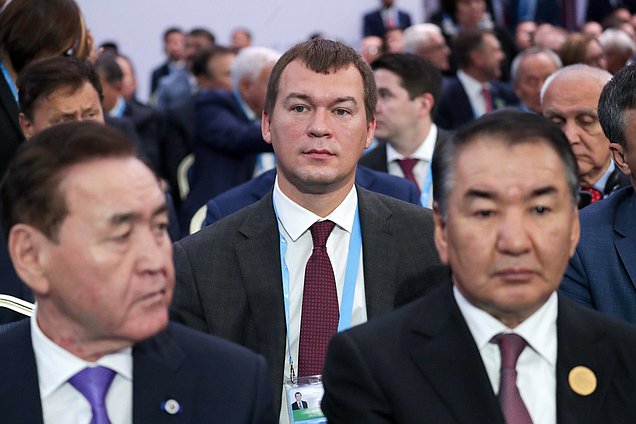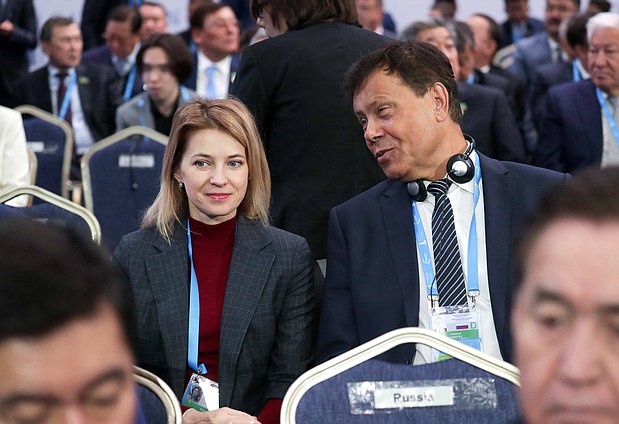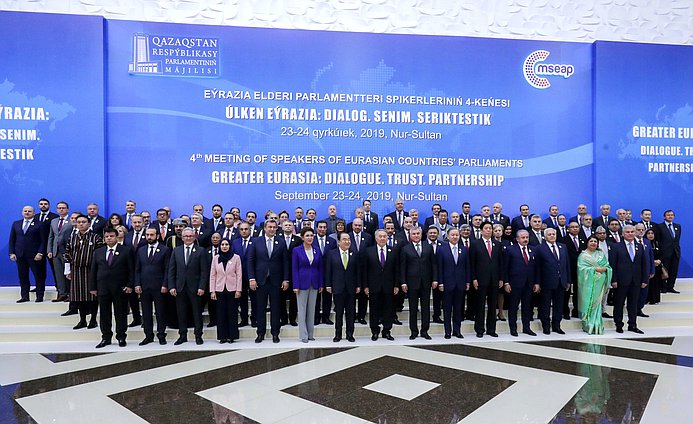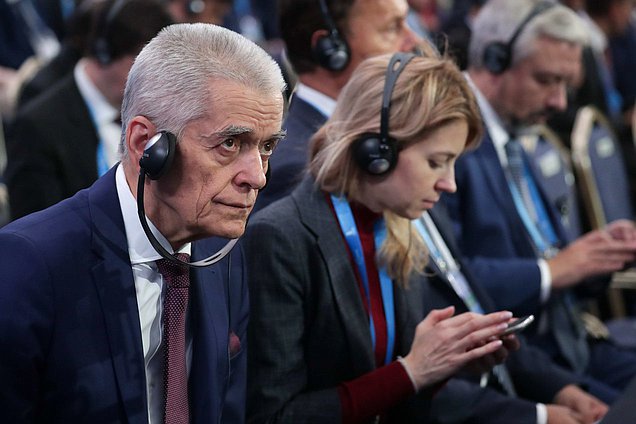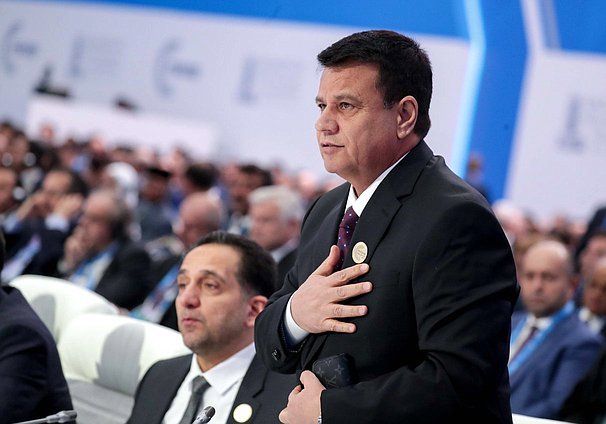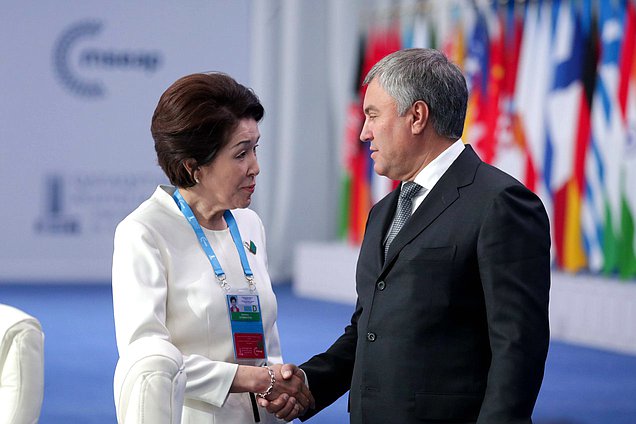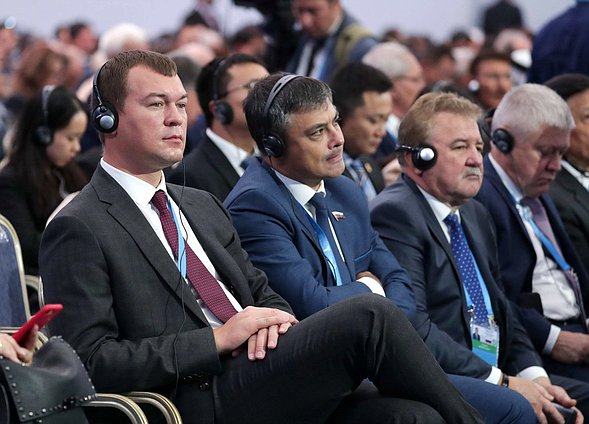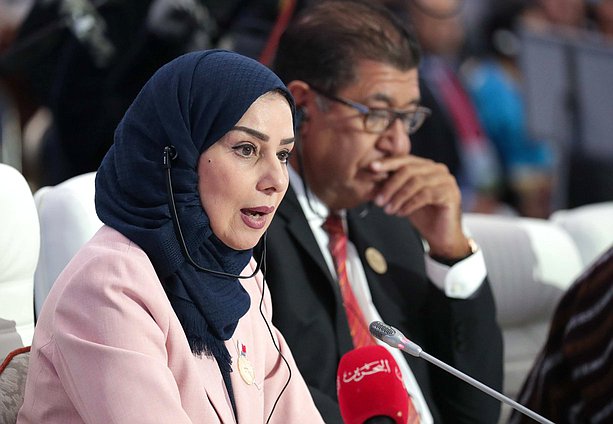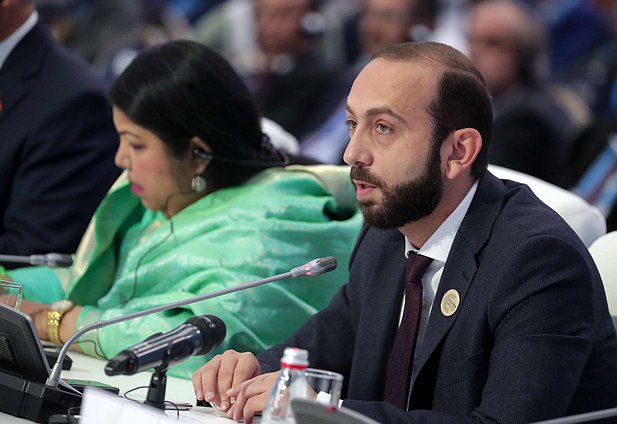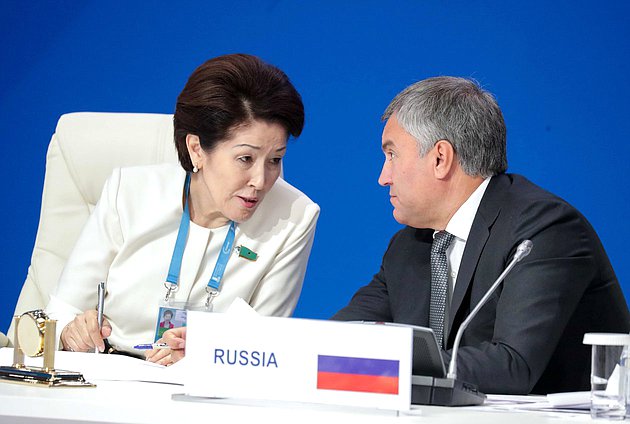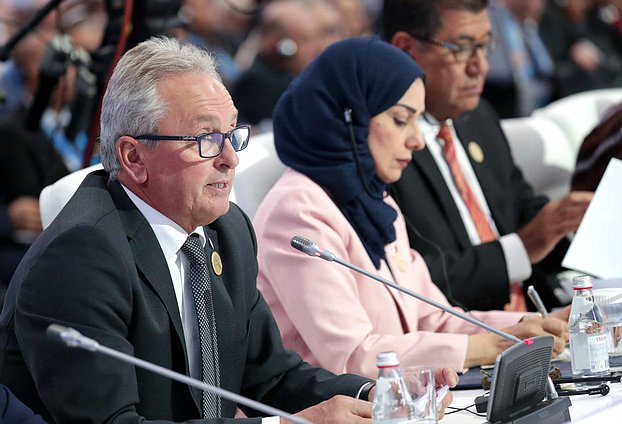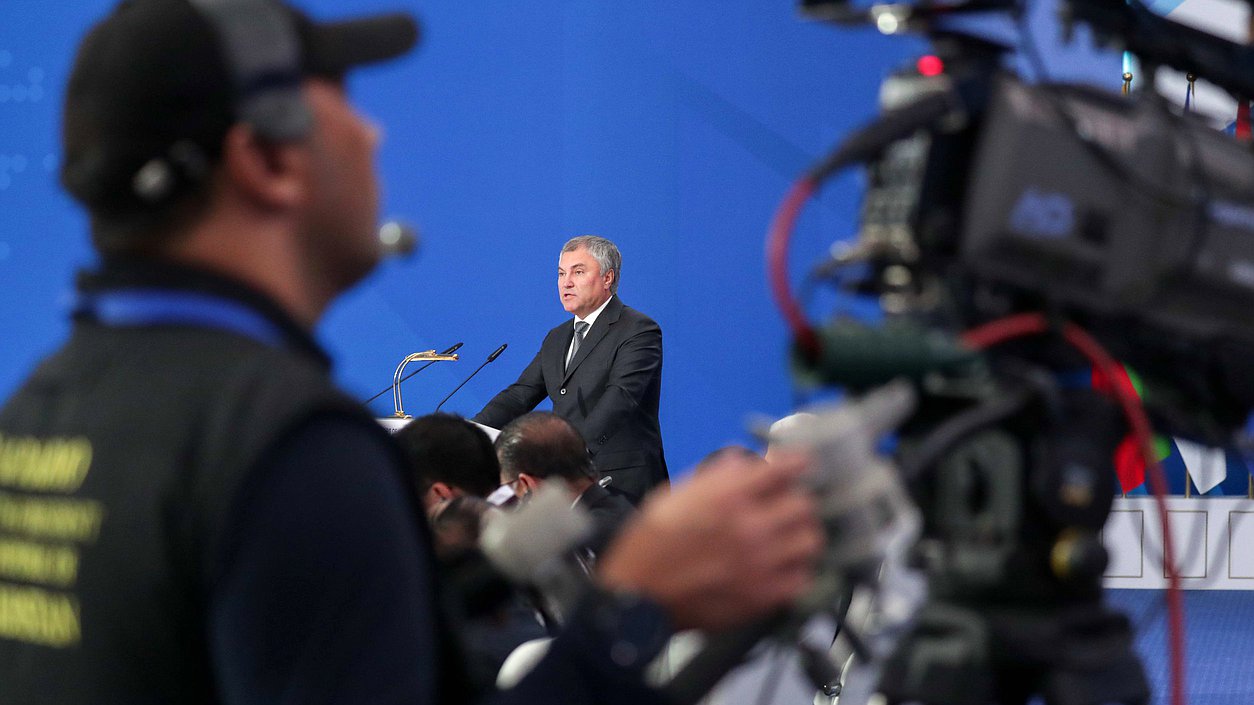
Dear Nursultan Abishevich, colleagues! We should take into account that there are time limits and everyone wants to present a speech, the number of the Meeting participants is really unprecedented, so I will say the main things: dialogue, trust and partnership. But first, let us thank Nursultan Abishevich Nazarbayev, the first President of Kazakhstan, for his initiative of European integration, which he proclaimed 25 years ago. Thank you very much.
Life develops in different ways and not every thought, a sound idea can be embodied, but the idea of creation of the Eurasian Economic Union has transcended into life, and more and more countries today are uniting within this organization.
Colleagues, I think that special words of gratitude to Nursultan Abishevich should be expressed for his awareness of the role of parliamentarism and responsibility in connection with the current situation. And at the same, time for an objective assessment of the current agenda. Because often we just avoid talking about difficulties, problems, and worries.
Today, the first President of Kazakhstan has objectively expressed his point of view, and I think that this point of view has taken roots in our hearts, and we think the same, but often do not want to talk about it. Paradoxically, but, indeed, colleagues, we should recognize the problems that exist not only in international relations, but also with the institutions established earlier, as well as compliance with international treaties and agreements.
The world, if we speak about the history of our relations, dialogue, trust, partnership, has not faced the problems that exist today. All countries recognized the primacy of the role of the United Nations. Today, we see the Organization faces the difficulties when it is being ignored, individual decisions on the deployment of troops, interference in the internal affairs of sovereign states are being taken. It is unacceptable. The rules and requirements of the largest World Trade Organization are practically neglected; trade wars are unleashed towards China, Russia, Turkey, and Iran. The sanctions affect the states of the European Union. And, colleagues, note that, despite these problems, not one of the international parliamentary organizations demanded to stop the violation of previously accepted international agreements.
International parliamentary structures were created to discuss and find solutions to problems on the basis of equal rights, despite the complexity and inconvenience in the discussion.
But alas, they are increasingly playing the role of political organizations, which aim reduces to various controversial assessments and monitoring. And this does more harm than good, because the culture of the countries, or the history of its settlement, or the interreligious factor, traditions, customs are not taken into account. This is unacceptable.
Double standards have become such a mundane approach to international relations that no one pays any attention to this. Agreements made over decades in the field of global security have been neglected without analysis of the consequences.
Do we understand the consequences of, for example, withdrawal of the United States from the INF Treaty? Do we silently agree with this or understand the risks and take a position? Where is this position? Which parliamentary organization stated this? If this poses a threat to the entire world community, we must do everything to maintain peace. It is unacceptable and dangerous to remain silent in this situation.
We are accountable to the citizens of our countries for prevention of escalation of conflicts, humanitarian disasters, impoverishment of the population, and devastation of states.
The format of the Meeting of Speakers has transformed to large-scale participation of the countries of Europe and Asia. Representatives of states from the Atlantic to the Pacific Oceans have gathered together in this hall. Colleagues, we have a real opportunity to discuss the most complex issues, guided by the interests of our citizens.
I propose to use this format not only for communication and holding of bilateral meetings, but also for development of specific solutions within the framework of harmonization of legislation in the field of countering drug trafficking, security and interregional cooperation and migration policy.
It is necessary to propose model laws in the sphere of combating terrorism. Today, terrorist organizations banned in some states, perform freely their activities in others. We cannot counter terrorism that way. There should be laws that allow forming a single list of terrorist organizations. This will be a real contribution of parliamentarians and international parliamentary organizations to the fight against terrorism.
Today's Meeting and its participants allow us to resolve these and other issues. I hope for that approach in our work. Thank you for attention.
